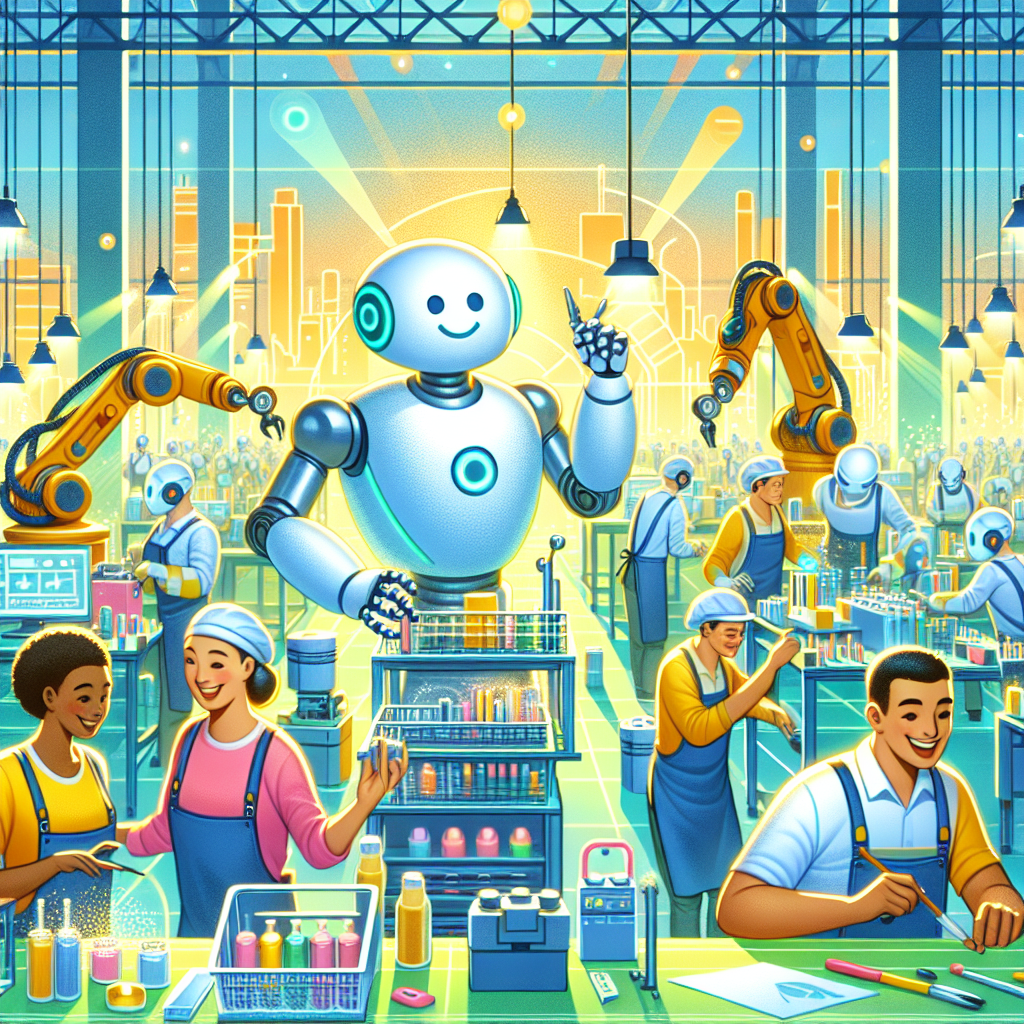Gemini Robotics Brings AI into the Physical World
In a world where technology is rapidly evolving, the integration of artificial intelligence (AI) into robotics is transforming industries and redefining the future of work. Gemini Robotics, a pioneering company in this field, is at the forefront of this revolution, leveraging AI to enhance robot capabilities and push the boundaries of what is possible in the physical world. But what does this mean for the future of robotics, and how will it impact various sectors?
Overview of Gemini Robotics
Gemini Robotics is a company dedicated to harnessing the power of AI to create more intelligent, adaptable, and efficient robots. Founded with a mission to bridge the gap between technology and physical tasks, Gemini has made significant strides in developing innovative robotic solutions. Their journey began with a focus on autonomous systems, which have evolved to include sophisticated AI-driven technologies.
Key innovations by Gemini include the development of machine learning algorithms that enable robots to learn from their environment and adapt to new situations. This capability has been crucial in enhancing the precision and speed of robotic operations across various industries.
Understanding AI in Robotics
AI in robotics refers to the integration of artificial intelligence technologies into robotic systems to enhance their capabilities. This includes the use of machine learning, computer vision, and natural language processing to make robots more intelligent and autonomous.
-
Machine Learning: Allows robots to learn from data and improve their performance over time. For example, a robot can learn to recognize and classify objects based on visual data, enabling it to perform tasks like sorting or quality control more efficiently.
-
Computer Vision: Enables robots to interpret visual information from cameras and sensors, allowing them to navigate and interact with their environment more effectively. This is crucial in applications such as autonomous vehicles or warehouse management.
-
Natural Language Processing: Facilitates communication between humans and robots, making it easier to program and control robotic systems using voice commands or text inputs.
Real-world Applications
Gemini Robotics’ AI-powered robots are being used in several industries, including:
-
Manufacturing: AI-driven robots are used for quality control, assembly, and inspection, improving efficiency and reducing errors. For instance, Gemini’s robots can detect defects in products more accurately than human inspectors, ensuring higher quality outputs.
-
Healthcare: Robots assist in surgery, patient care, and lab automation, enhancing precision and reducing recovery times. AI can help analyze medical data to predict patient outcomes and personalize treatment plans.
-
Logistics: AI-powered robots optimize warehouse management, inventory tracking, and delivery systems, streamlining supply chains and reducing costs. They can navigate complex warehouse layouts to quickly locate and retrieve items.
Case Study: Gemini Robotics in Manufacturing
One notable example of Gemini’s work is in the manufacturing sector, where their AI-powered robots have been integrated into production lines to improve efficiency and accuracy. By using machine learning algorithms, these robots can adapt to new production requirements and learn from past experiences, reducing downtime and increasing overall productivity.
Future Potential
As AI continues to evolve, the future of robotics looks promising. Experts predict that autonomous robots will become more prevalent, capable of performing complex tasks independently. This could lead to significant advancements in industries like agriculture, where robots could automate crop management and harvesting, or in construction, where they could assist in building complex structures.
Dario Amodei, CEO of Anthropic, notes the potential for AI to surpass human capabilities in the near future, emphasizing the need for societal structures to adapt to these changes[1]. This includes preparing for a future where AI-driven robots are integral to daily life and industry operations.
Challenges and Considerations
While AI in robotics offers immense benefits, there are challenges to consider:
-
Ethical Concerns: Ensuring that AI systems are transparent, fair, and accountable is crucial. There is a growing need for regulations that address AI bias and ensure that robots are used responsibly.
-
Safety and Security: As robots become more autonomous, ensuring their safety and preventing potential misuse is essential. This includes implementing robust cybersecurity measures to protect against hacking and data breaches.
-
Societal Impact: The integration of AI in robotics could lead to job displacement in some sectors. However, it also creates new opportunities for employment in fields related to AI development and deployment.
Conclusion
Gemini Robotics is at the forefront of a revolution that is transforming the physical world through AI. As robots become more intelligent and autonomous, they will play a crucial role in shaping industries and societies. While there are challenges to address, the potential benefits of AI in robotics are undeniable. Whether you’re a robotics enthusiast, a technology professional, or simply interested in emerging tech, the future of AI-powered robots is certainly worth watching.
To learn more about the latest advancements in AI and robotics, you can explore the following resources:
- Crescendo.ai provides updates on the latest AI breakthroughs and news: https://www.crescendo.ai/news/latest-ai-news-and-updates[1].
- HIStalk offers insights into healthcare AI news and developments: https://histalk2.com/2025/03/12/healthcare-ai-news-3-12-25/[5].





